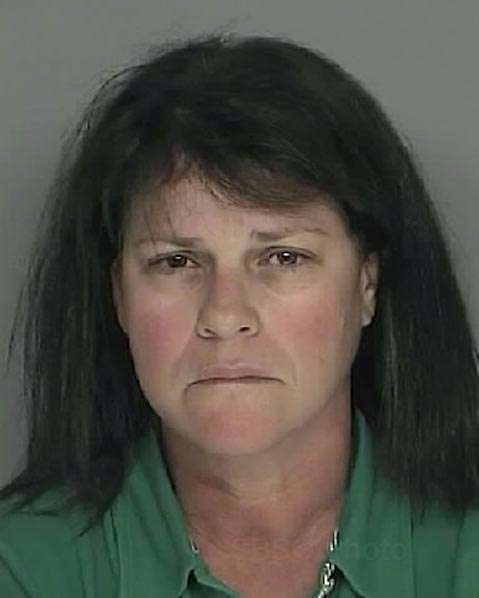Genise Schu Denied Spousal Support
Even Before Sex Crimes, She Emotionally Abused Husband and Kids, Judge Says
Convicted child molester Genise Gomez (formerly Genise Schu) was denied permanent spousal support from her ex-husband at the conclusion of a precedent-setting trial last week in Santa Barbara.
Gomez, 53, served three years in prison for engaging in a long-term sexual relationship with her son’s 13-year-old friend. She was released in April 2013 and will remain on the state’s sex offender registry until April 2016.
In her initial petition for spousal support, Gomez asked for $7,900 a month to cover her rent, clothes purchases, and meals out, among other expenses, but she raised the request to $26,000 a month by the start of the trial. Her attorney, Bruce Glesby, argued Gomez has not worked for close to 20 years, as her ex-husband was the family’s sole breadwinner. In that time, she had become accustomed to a comfortable, upper-middle class lifestyle that included a nice home and family vacations, he said.

It would take Gomez approximately two years to reintegrate into the workforce, Glesby stated, where she could realistically hope to earn between $36,000 and $56,000 a year as a program administrator, event planner, or graphic designer, according to a vocational evaluator’s report. But securing a job may prove difficult given her criminal record, he explained. Because of those difficulties, Gelsby said, Gomez was entitled to financial assistance.
Gomez’s ex-husband filed for divorce immediately after her sentencing in 2010, and she received nearly $1 million in assets as part of their settlement. Court records also show she receives substantial and ongoing support from her father. During her interview with the vocational evaluator, Gomez said she would “always be okay” with regard to her financial security.
Gelsby argued during the trial that, contrary to the assertions of Gomez’s ex-husband and their three children, his client was not abusive in her roles as mother and wife. In a deposition, Gomez’s daughter described how Gomez would feel threated by attention she received from men, and so made her wear glasses instead of contacts, and in one instance forcibly cut her hair. She would also favor her older son at the expense of her other two children, her family members said, and provide alcohol and pornography to the young teens at their home when their father worked overseas.
Gelsby said while Gomez’s parenting style could be described as controlling and even intrusive, her actions throughout the years before and while she committed her crimes did not amount to abuse.
Judge Colleen Sterne disagreed. “The three Schu children and their father were subjected to unease and emotional abuse for years,” she said in her ruling. “The testimony of the three children, in particular, was highly probative and persuasive to the court that they had, in fact, been seriously emotionally harmed by these events.” California law allows for a denial of spousal support when evidence is presented that shows a history of domestic violence or emotional distress.
Gomez’s victim, now in his 20s, also gave deposition in the case. He spoke of the lasting toll the abuse has had on his life and wellbeing, and said of Gomez, “She was obviously a terrible person, master manipulator, liar. You guys know it … Child molesters are a certain way.” The victim successfully sued Gomez in a civil case that settled out of court.
Bakersfield attorney Ralph Wegis represented Gomez’s ex-husband. He lauded Sterne’s ruling as “a very important decision and one that I hope, and truly believe, will be a cornerstone of protective help.” Wegis said the case was unprecedented in family law court for its sheer scale and impact, and that future spousal support litigation involving people who’ve committed similar crimes will rely on its outcome. “Now we have healthy guidance from the application of this law.”
Wegis expressed repeated bewilderment, however, that Gomez received what he described as an exceptionally light sentence given the seriousness of her crimes. Tallying the number of times she slept with her victim over the course of seven years, Wegis said he counted more than 550 felonies. “How on Earth did the District Attorney’s Office fashion a plea deal for just 10 felonies, resulting in her serving three years and registering as a sex offender for just three years after that?” he asked. “When you look at the criminal justice system and its job to protect people, this is a horrible failure.”



